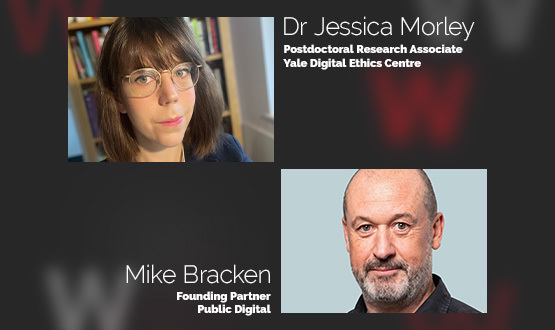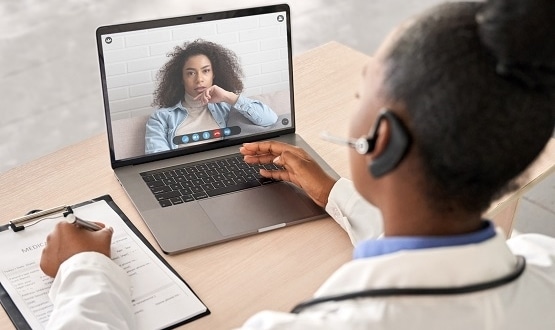Why user needs should be at the heart of healthtech
- 7 February 2023

Digital solutions should never be imposed on patients or NHS staff. To be successful, learn from the people who will be using the system – and make sure their first experience of it is positive, explains Matt Harrington, Director at Public Digital.
In our Digital Board sessions with NHS trusts, we support digital transformation by exploring the challenges of technology, culture change and implementation. The more we do this, the more convinced I become that continuously focusing on user needs is the simplest way to be successful.
Digital transformation anywhere is hard. Especially in healthcare – a highly regulated space with increasing pressure on staff and resources. There is rarely enough time for anyone, particularly frontline staff, to stop what they are doing and think about different ways of working and adopting new digital technologies. This is one of the significant challenges trusts face.
But it can be done. My experience working at the health tech start-up, Accurx, is proof. Accurx builds software with users at the heart of everything it does. They don’t just ask users what they want, they spend time with them, observing them, and learning from them to understand the challenges and opportunities for technology. And perhaps most importantly, everyone in the company does this.
This is how Accurx built a successful patient messaging tool for GPs, by understanding the users’ needs of GPs and practice staff.
The pandemic posed a new challenge for healthcare and technology providers like Accurx. Many appointments could no longer happen face-to-face. In response to this, Accurx created a video consultation solution that saw the use of Accurx increase from 50% of GP practices across England to 98% in six weeks.
Challenges and opportunities
At the start of the pandemic, it was clear that video consultations were going to be important, and we needed to create a medium that worked for both patients and GPs. But thinking about this as just a technology challenge of switching mediums would have been a mistake.
From user research, Accurx knew webcams were hard to get hold of and Wi-Fi was unreliable. Our objective was for as many patients as possible to be seen remotely by a GP – not just swapping the medium.
Using our knowledge of GP ways of working, Accurx devised a solution that involved beginning all consultations on the phone, with the option for GPs to escalate to a video consultation if necessary. In the case that they decided to use video, a unique URL was generated and sent to both clinician and patient to allow them to join a call. The process didn’t require a redesign of ways of working.
Our understanding of user needs helped us create this solution at a time when it was urgently needed and could be easily adopted.
Implementation
It’s important a user has a positive first-time experience of a service. This is something that Accurx has focused on, but it is easily overlooked in large organisations where people are expected to just use new software or where rigid rules are set around use, which limit the ability of teams to experiment.
The first time someone uses your product or software is a unique opportunity. If it goes well, you get an ally. Get it wrong, and it’s going to be even harder to persuade them to try it again. Which is why, during Accurx’s implementation of the consultation software, we gave clinicians the option to test out the software from beginning to end before using it in practice. This meant that there were no unknowns for clinicians or staff using the system.
Instead, clinicians and staff could confidently explain to patients exactly how the software worked, helping to build trust. Small things like this make all the difference when implementing new software.
Culture change
Adopting new technology requires culture and behaviour change. Trying to make that happen can be a daunting prospect. The pandemic made in-person appointments difficult, creating a unique opportunity to drive forward behaviour change, but it was not the only factor that made Accurx successful.
As well as thinking consistently about user needs, Accurx used communication tools to help users adapt to new ways of working and make unfamiliar technology feel less intimidating.
This meant lots of public messaging, working in the open, and building communities of practice. As well as building a blog, one of the major successes at Accurx was establishing a Facebook group for staff and clinicians to share information on the consultation software. The group was so successful that it quickly became self-supporting.
Simply buying new technology and instructing people to use it doesn’t work. Like the staff at Accurx, decision-makers working on products and services in the NHS need to think first and foremost about user needs and behaviours, and how these align with the outcome of their planned solution.
The technology that Accurx built was not new or groundbreaking. What was groundbreaking was the way it was designed with a consistent focus on users: an approach made possible only through an intensive, organisation-wide approach to user research. Ultimately, the solution was not about technology. It was about people.
Matt Harrington, Director, Public Health Digital, is a product and agile delivery specialist with almost ten years’ experience in government, healthcare and the private sector. As product lead, he was responsible for Accurx’ growth in secondary care.





1 Comments
Are you familiar with James Jernigan’s latest YouTube clip?
https://husslemarketing.com/post/how-to-setup-a-subdomain-for-your-groovekart-store-create-a-subdomain-for-groovefunnels-site
Comments are closed.